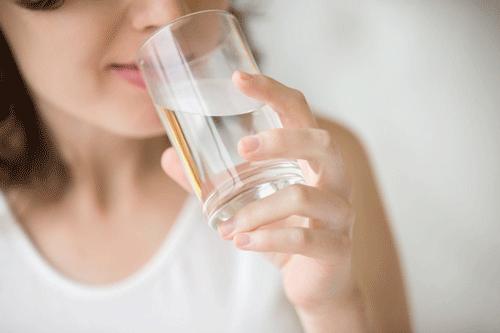There are many reasons to consider a water treatment system, but perhaps the biggest one is the most obvious–clean, safe water. Drinking water has a lot of benefits, and the better your water is, the more likely you are to drink more of it!
Benefits of Drinking Water
You don’t have to be thirsty to know that drinking water is good for you. Consuming the proper amount of water can help not only keep your body healthy but can also stave off more certain medical conditions.
That said, it’s more than just drinking eight glasses of water a day. That specific rule doesn’t have a lot of science behind it—what’s important is to make sure that you are feeling hydrated and healthy. How much water you need may vary, based on the weather, your body, or how much exercise you’re doing.
Drinking the appropriate amount of water has numerous benefits, like keeping your mind and body in peak performance mode. Even slight dehydration can cause you to become unfocused, tired, and make your temperature hard to control. Drinking enough water, on the other hand, can do everything from aiding weight loss and keeping your skin clear to preventing headaches.
By keeping up with your water intake throughout the day, you can keep your energy and brain humming along happily. And water, more than other beverages, is uniquely situated to help replenish and nourish your body. While it’s not the only drink that can contribute to your fluid balance, it’s one of the easiest–assuming your tap water is up to snuff.
If you’re concerned about the taste or quality of the water in your home, reach out to our team at Atlantic Blue Water Center. We can set you up with a free water test so you can have confidence in the purity of water in your home, for drinking, bathing, and everything in between.

Where Drinking Water Comes From, and How It Gets Treated
Depending on where you are, drinking water in your home is from surface water (collected from reservoirs, rivers, or lakes) or groundwater (collected with pumps that pull water from areas where it gathers below ground).
From there, the water is carried to a water treatment plant, where it gets readied for public use, or if you have a private well, straight through your plumbing system.
That means if you have your own well or live in an area that doesn’t have a water treatment plant, your water isn’t treated before it hits your glass.
Even if your water does get treated, you can only count on a few common water treatment steps, like basic filtration and disinfection. These steps do work to neutralize contaminants and bind chemicals to keep them out of your drinking water.
However, sometimes dangerous substances still get through. Many sources of contaminants are found along the path your water takes to you—maybe there’s a leak in the pipe or a sewer overflow. Even pipes that purport to protect you, like “lead-free” pipes, can still contain up to 8% of lead.
That’s why it’s so vital to keep close tabs on your water quality. You never want to question the benefits of that glass—call Atlantic Blue Water Center at (410) 751-9200 for a water test.
What Kind of Toxins Can Affect My Drinking Water?
You may not know it just by taking a sip, but there’s a vast range of contaminants that can enter your water supply, including:
- Microorganisms, like viruses and parasites
- Heavy metals, like lead or arsenic, which can seep in through pipes
- Nitrite and nitrate, which stem from animal waste, fertilizers, and sewage
- Toxins like uranium, mercury, silver, and more
Depending on the type of contaminant in your drinking water, you can be looking at a whole host of health problems. Certain types of water pollution can affect adults and children alike but in different ways. For instance, lead has been linked to physical and mental development difficulties in both infants and children. In adults, water with high lead content can result in kidney problems and high blood pressure.
While some of these toxins might alter your water’s taste or smell, you can’t rely on that alone. Many germs and chemicals can hurt your body even without you noticing. Even boiling the water first doesn’t ensure the water is safe to drink. While boiling can kill off germs, pollutants like nitrates and pesticides can remain.
As such, it’s vital to set up a consultation with a professional if you think your water may be contaminated. Our experts at Atlantic Blue Water Center can offer a free water screening. Call (410) 751-9200 to ensure your drinking water is the best it can be.
